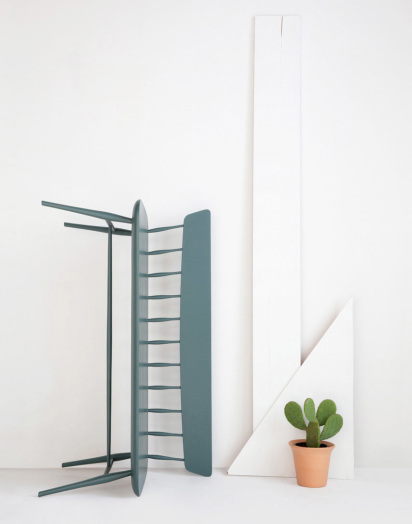
Syrette Lew’s creative path has taken many twists and turns, resulting in two undergraduate degrees, multiple bi-coastal moves and a series of temp jobs until – finally – she reached the peak of her dream career: owner, founder and creator of her own design studio. Aptly titled, of course, Moving Mountains.
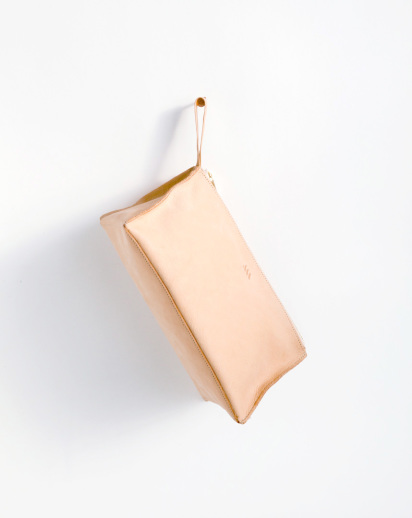
“The name is an allusion to [growing up in] Hawaii, but it’s also a reference to the challenges I knew that would come with starting a business,” Syrette writes. With an economics degree but little direction, Syrette contemplated and experimented with a variety of jobs before realizing her greatest passion: industrial design. “It just clicked,” she writes. “It sounded interesting and awesome but more importantly, able to satisfy both my creative and analytical impulses.”
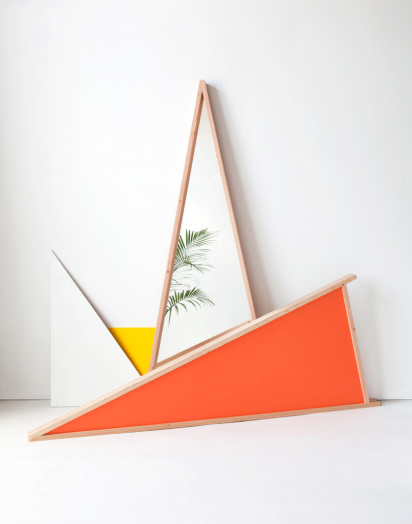
So, Syrette went back to school for a second degree in design, eventually landing a job with an established home furnishings based in NYC. And although it was a valuable experience for her, she wasn’t fulfilled. “It was hard for me to reconcile the pace at which we were designing and the amount of products we were putting out each season and feel good about it,” she writes. “As the economy slowly recovers [from the recession] and disposable income becomes available, if we’ve gained any insight from this experience it’s that we should be more cautious and critical of how and what we spend our money on. People are discovering that things which are “timeless” and “simple” are good investments because they will transcend the many trends that come and go and last longer.”
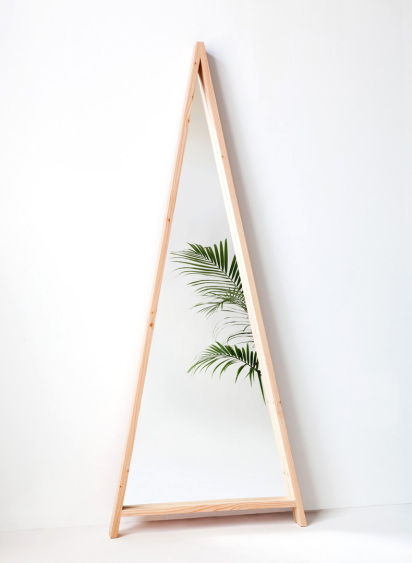
Torn between her industrial design future and economic past, Syrette knew what she needed to do: break free from the corporate expectations and, instead, create at her own pace. “Quitting my stable full-time job was probably the hardest thing to wrap my head around (and I’ve literally jumped out of airplanes),” she writes. “I could fill an entire page [with the challenges I’ve met], but I guess the hardest one for me is accepting uncertainty and cultivating patience.”
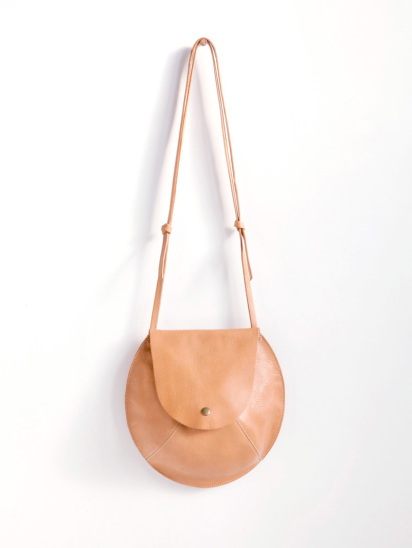
It takes a special kind of person to buck the system – to slow down in the fast lane, to swim upstream. Since her launch, Syrette has released timeless, classic designs from bags to jewelry to her latest venture: furniture. Yet with every new collection, her mission is rooted in everyday ideals: simplicity and function. “I’m much more interested in quality than quantity, so I can’t guarantee there will be something new each season,” she writes. “I definitely want to take my time and not feel pressured to produce more because the industry expects it.”
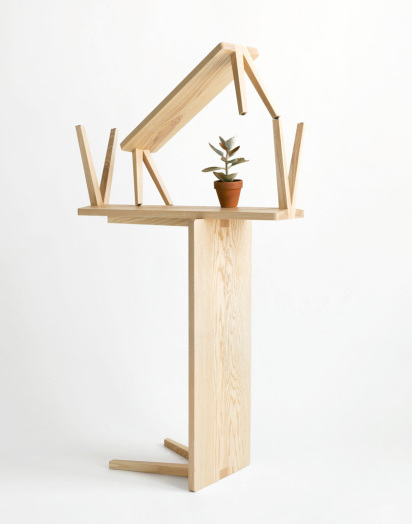
An industrial designer not releasing a new collection every season is essentially unheard of. Yet it’s a mountain that Syrette is proud to scale. “As someone who has spent her career designing “modern” furniture, I know how hard this is to achieve,” she writes. “There’s a fine line between too much and too little and it’s hard to know what will withstand the test of time. It is one of design’s most difficult exercises – but if achieved, can be sublime.”
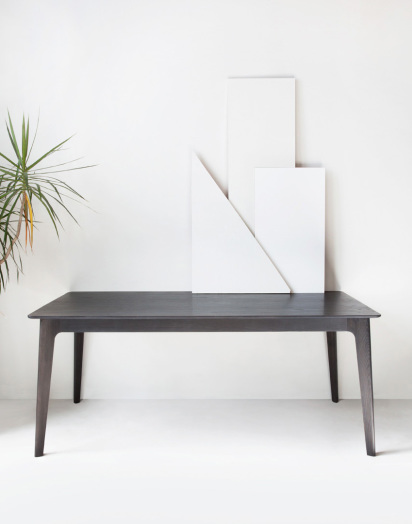
I once read a quote from Steve Jobs that seems particularly poignant in Syrette’s story. “Simple can be harder than complex,” he says. “You have to work hard to get your thinking clean to make it simple. But it’s worth it in the end because once you get there, you can move mountains.”
I have a feeling Syrette is well on her way.
Image Credits: Moving Mountains
p.s. Another shop committed to taking it slow.


Great post! Yes, I find myself craving simple as well and wanting to spend money on quality rather than quantity. Kudos to Syrette for bucking the system, that is not easy. Thanks for introducing her to us!
Thanks, Katie! :)
Love the designs, but love the thinking even more. And the quotation from Steve Jobs: Need to put that somewhere I can see it all the time.
Right? I was thinking the same thing. :)
What an inspirational article. Beautiful work and words. Thank you for sharing!
She’s such an inspiration!
“As the economy slowly recovers [from the recession] and disposable income becomes available, if we’ve gained any insight from this experience it’s that we should be more cautious and critical of how and what we spend our money on. ”
I would also substitute the word “time” for money. How and what we spend our time on…much more valuable than money.
AMEN.
I have learn a few good stuff here. Definitely worth bookmarking for revisiting.
I surprise how much effort you put to make this kind
of excellent informative website.